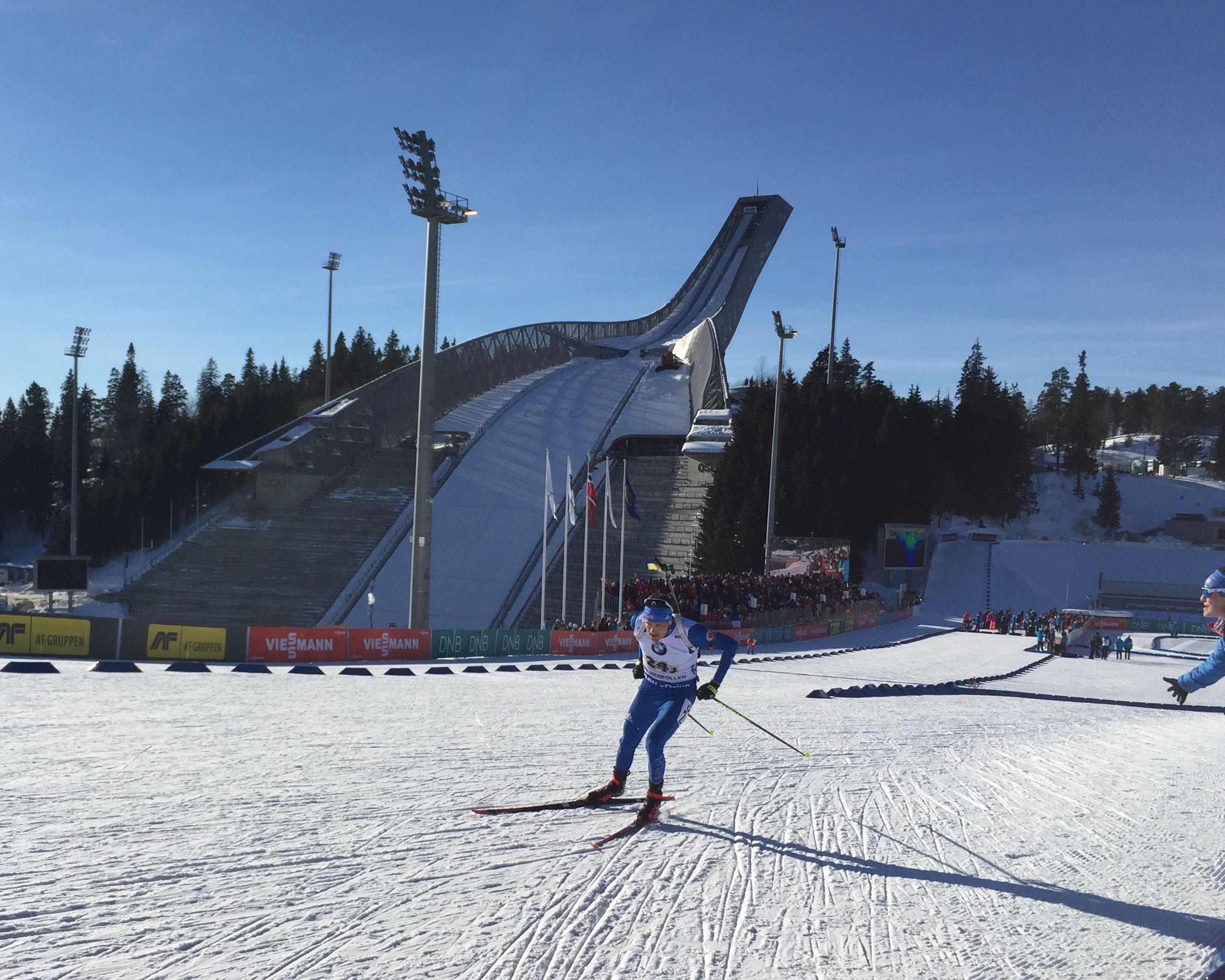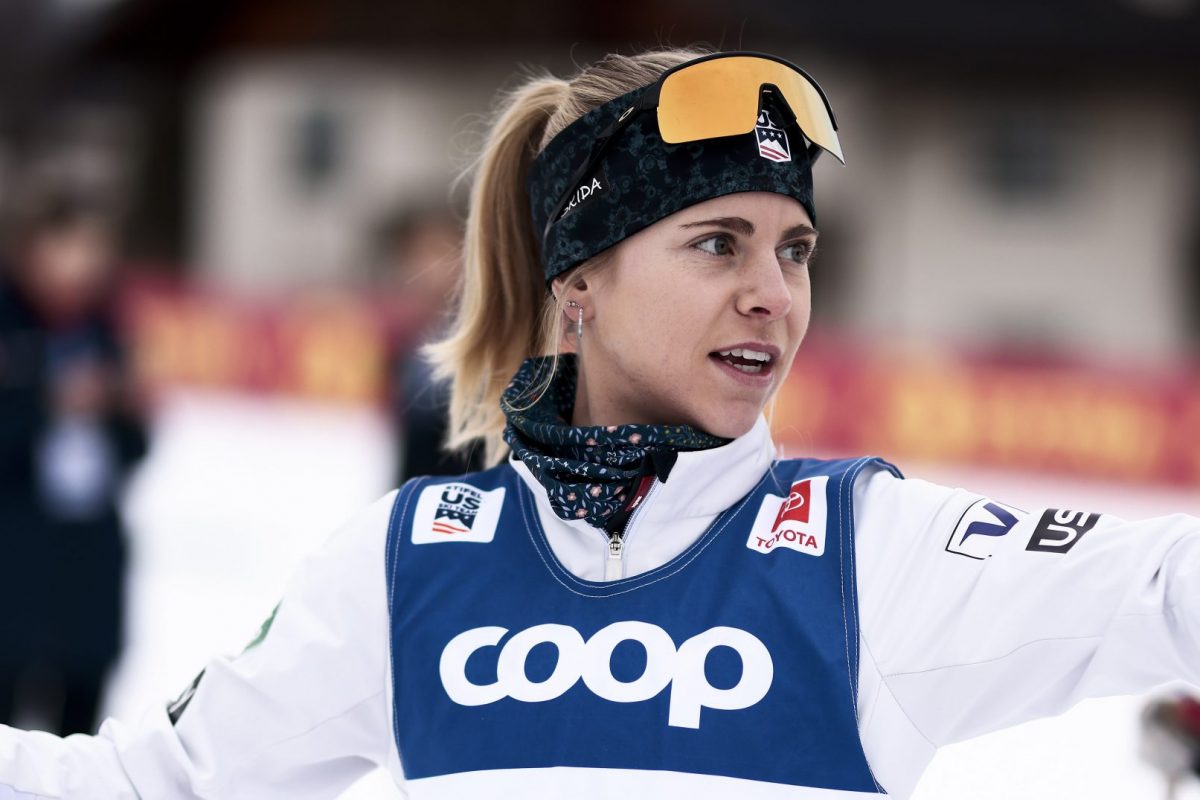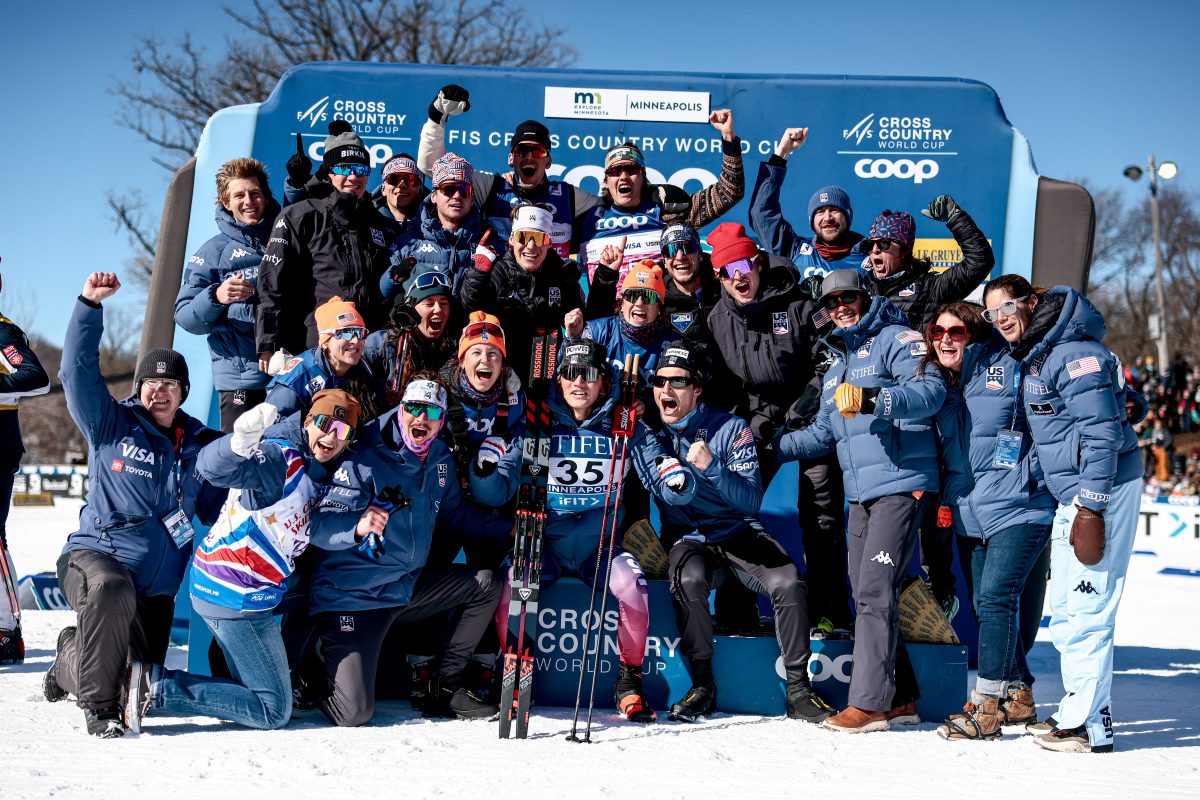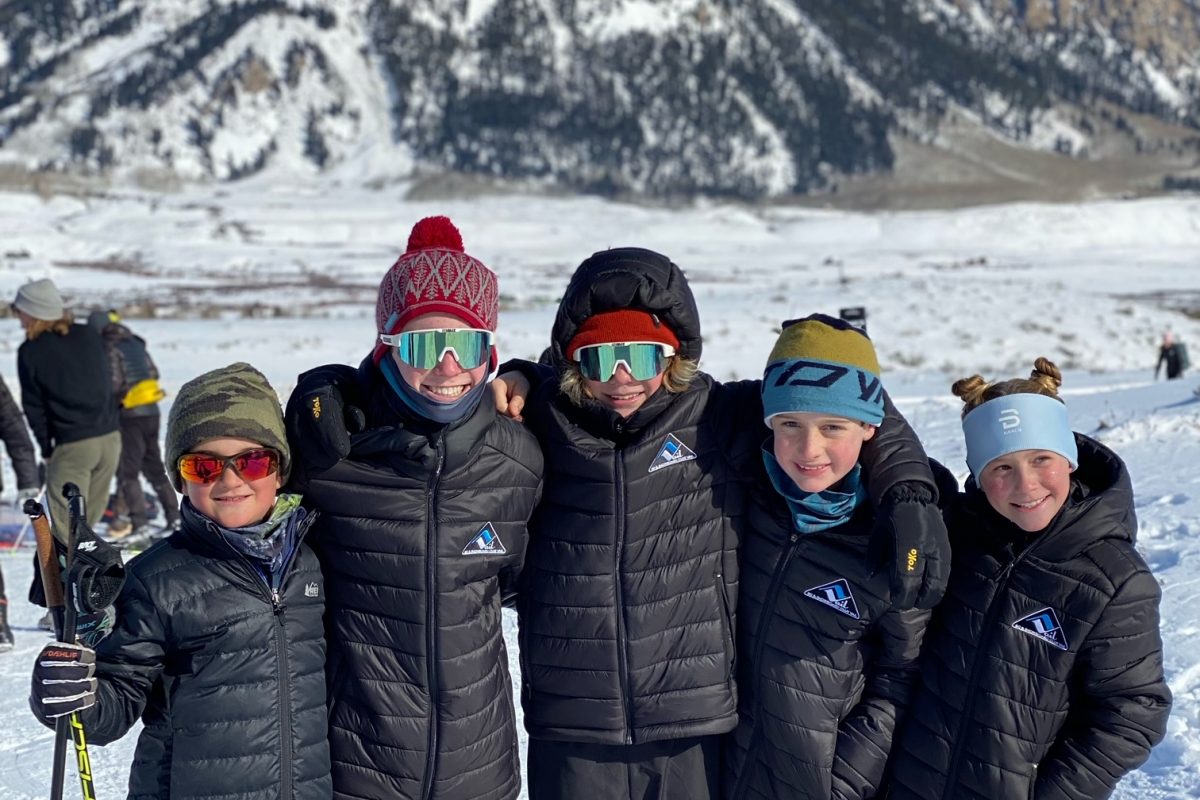
OSLO, Norway — In some ways, Sunday’s 4 x 7.5-kilometer men’s relay was very special for the U.S. biathlon team.
Two stalwart members – World Championships gold medalist Lowell Bailey and silver medalist Tim Burke – were retiring. It would be the last race of their long international careers.
In other ways, though, the team wanted it to just be a normal race. Their goal was to put together a good relay and a good result.
“Nothing’s changed in terms of, it’s about getting the best result we can,” Bailey said after leading off the relay and tagging teammate Sean Doherty in seventh place, having used just one spare rounds. “At the end of the day, that’s what we all want, and I couldn’t be happier if that’s how my career ended.”
After Bailey’s relay leg, the team moved around quite a bit within the top 10, but by the race’s end, they came back to seventh place, 2:01.5 behind Norway, who took a blowout win over Austria (+50.3) and Russia (+56.9).
All the American men had good skiing, with their relay legs ranked fourth (Bailey), eighth (Doherty), sixth (Burke), and eighth (Leif Nordgren) for ski times, respectively. Together, they used eight spare rounds – far more than the winning Norwegian team’s three, but similar to many other teams in the middle of the field.
“That’s solid,” Burke said. “See how tight it is up front, besides Norway with the big lead? Other than that, it’s really close. We’re in the mix. You always want more, but it’s a solid result … the Olympic relay, we were very happy with. The sixth place there [in PyeongChang, South Korea], we were right there. That was a great race for us, but this is solid as well.”
Even though the U.S. had started in bib 24, in the very back of the mass start, Bailey had been able to find his way through the crowded pack and move up to seventh place. He then used a spare round in prone, dropping to 12th, but with clean standing and his good skiing, moved the U.S. back into contention.
“It didn’t seem it, but it took a lot of mental energy and focus to execute a good race,” Bailey said. “I told myself this morning that I just wanted to go out on a high note. I wanted to go out with a good result. And, I’m really happy to have shot clean in standing, clean from the clip in my last stage as a World Cup biathlete. That feels good. I’ll always remember that — that I went out with a clean stage.”
After Bailey, Doherty used two spare rounds and moved up to sixth place.
“I had a little ride there for the first lap, which was nice, and got into a good rhythm,” he said. “I had one spare [in each stage] … no harm there. It’s not ideal because it would have been really good to try to get contact with that kind of pack of four or five guys that were kind of together ahead, but we’re still right in it.”
Burke had clean shooting in prone to stay in sixth place, but used two spare rounds in standing and dropped to 10th, where he stayed until he tagged off.
Given his emotions, however, he was more than happy with just two spare rounds.
“I was more nervous for this race than nearly any other race in my career,” he admitted. “I was like, pull it together, because the other guys are counting on you today. So I tried to approach it like any other race, but honestly, it was a challenge to keep bringing myself back into the race mentally. I’m was happy to have stayed out of the penalty loop.”
Nordgren anchored the team and despite using all three spare rounds in standing, he moved up to eighth place when he left the range and passed another racer on the trails to bring the team home in seventh.
“I’ve been here a long, long time, and an top eight today is very different than a top eight when I came on the World Cup 14 years ago,” the 36-year-old Burke said, looking back over his career. “It’s so close now. There’s so many good teams. So it’s a solid result.”
The fact that he and Bailey, also 36, were here competing is a result of many changed plans over the last decade. The two initially planned to retire after the 2006 Olympics in Torino, Italy.
“The original goal was 2006 or bust,” Bailey said. “You know, like make the Olympic team, be an Olympian and move on. I’m so glad I didn’t follow through with that, because, you know, it’s a great feeling and accomplishment to make an Olympic team, but biathlon is so much more than that.”
“… It’s a great feeling and accomplishment to make an Olympic team, but biathlon is so much more than that.” — Lowell Bailey, US Biathlon
Both retiring athletes plan to stay involved with biathlon in one way or another. Bailey is a board member at the Crosscut Mountain Sports Center in Bozeman, Montana.
“I wouldn’t even say goodbye, because I intend to still be in contact with everyone and I really want to see US Biathlon move forward in the next four to ten years,” Bailey said. “I think the future is bright, and we have some great athletes that still have a lot to contribute on the World Cup. But then also, there’s new athletes out there right now that will come onto the World Cup stage. The future definitely is bright.
“I can honestly say biathlon has made my life so much better,” he continued. “So I feel very fortunate to have been introduced to the sport so many years ago. And it’s taken me on a wild roller coaster ride.”
Burke is not sure of his plans moving forward, but won’t be saying goodbye to biathlon permanently either.
“Nothing’s set in stone yet,” he said. “I really want to take a few months to myself right now. You know, I’ve been married for three years; I’ve never spent any anniversary with Andrea. We just built a new house last year. I haven’t really spent any time in it. I’ve missed all my nieces and nephews’ birthdays for the last eight years. I’m so excited to have more time with my family and friends, and try and make up for some lost time there.
“But I will absolutely stay in biathlon in one way or another,” he continued. “I’d like to think I’ve learned a lot in the 14 years I’ve been on the World Cup. Done some things right. Made a ton of mistakes. I would love to be able to share those experiences with the next generation coming up.”
Burke said that while he had been a wreck and barely able to focus on his race in Saturday’s pursuit, with the prospect of his last World Cups weighing on him, at the same time he wasn’t fully processing that his career was over.
“It’s weird. I don’t honestly I don’t know if it’s truly hit me,” he said. “It might take weeks. It’ll probably be May 1 when my body’s telling me, ‘OK, time to get back into training routine. Time to open up the training log. All right, what’s the plan?’ I think it’s going to take a long time for all to settle in and for me to really reflect back on my career. Yeah, it’s a lot of emotion.”
Even for those not retiring, it was a memorable day.
“It is special, for sure,” Doherty said. “It’s an honor to race with these guys and to have raced with them for the few years that I have. It has been great.”
As the sun shone, the team and a staff drank champagne and then stood out in the middle of the stadium soaking it all in.
“You know, it’s such a beautiful venue and a great place to compete,” Bailey said of Holmenkollen. “It’s about the history, and the course obviously is spectacular. But, you know there’s a little bit of luck involved in World Cups, and you can have really bad weather and you can have good weather, and this is the best weather we’ve had the whole year. I feel kind of blessed to be able to experience my last World Cup in these conditions, with the sun out and everyone smiling. I’ve never really thought about it or pictured it, but if I have, this is what it would look like.”
The Canadian team of Christian Gow, Scott Gow, Brendan Green, and Macx Davies finished 16th (+5:42.4) with 10 spare rounds.
“I’ve been kind of out of gas since like I got pretty sick after the Olympics, and I just haven’t been able to build my shape back,” Christian Gow said. “It’s been an arduous couple race weekends — even if the shooting’s good, I’m physically just exhausted. So, it’s disappointing to feel that way. … After the [Olympic] peak, you need to rebuild a bit, and I wasn’t able to do any of that because I had to take a week off or something like that [due to illness]. So, yeah, I’d rather be strong at the Olympics and then not as strong at the end of the year, but it doesn’t make it easier in the moment.”
Chelsea Little
Chelsea Little is FasterSkier's Editor-At-Large. A former racer at Ford Sayre, Dartmouth College and the Craftsbury Green Racing Project, she is a PhD candidate in aquatic ecology in the @Altermatt_lab at Eawag, the Swiss Federal Institute of Aquatic Science and Technology in Zurich, Switzerland. You can follow her on twitter @ChelskiLittle.



